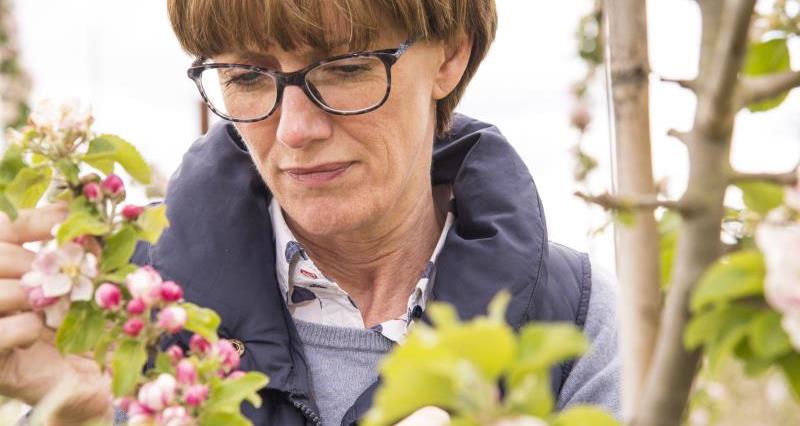With around 45,000 responses sent to Defra for its consultation on the future of UK farming policy, there is still much to do to ensure our voice is heard. But the NFU has certainly made a great start with its well articulated and fully comprehensive consultation response, setting out the key priorities for all sectors of agriculture and horticulture. This was no mean feat and credit must go to all of the commodity boards and policy teams for drawing together the feedback from our members and setting out clear and rationale arguments.
My focus, of course, is with the horticulture sector and I would like to draw your attention to a number of key areas which were highlighted in the NFU’s consultation response:
Labour
The NFU sets out very early its disappointment that the labour needs of the food and farming industry are given so little focus in the consultation. But our response rightly gives it the attention it needs. In the section on Labour and the Workforce (pages 41 – 44), we specifically draw attention to the current labour challenges faced in the horticulture sector and call for “an urgent solution to the farming sector’s labour needs is needed to avoid losing a critical mass of workers. We want a clear and unambiguous commitment from government that farmers and growers will have access to sufficient numbers of permanent and seasonal workers from outside of the UK where necessary.”
There are further references to the labour challenges throughout the document including within the section on productivity (see horticulture section on pages 31 – 33) which highlights the impact labour shortages can have on productivity growth and calls for greater support and investment in automation research to reduce the reliance on labour going forward. This latter point is expanded upon in the section on agricultural technology and research (page 38).
Producer organisations and productivity support
Right from the outset (Reform within the CAP, pages 10 and 16) the NFU calls for PO funding to be “guaranteed in the same manner that other agricultural monies have been.” And that “the PO scheme could therefore carry on being run, with improvements introduced that lay the foundations for a new scheme.” This is expanded upon in the section on horticulture productivity (pages 31 – 33) where we explicitly highlight opportunities for the principles of the PO scheme to be developed into a more inclusive and enabling scheme for the whole of horticulture and potatoes post-Brexit. In it, we call for a scheme that is open to all businesses and co-operatives and provides matched funded investment and loans. There are further references in the section on supply chain fairness (page 81) which again sets out the rationale for developing a new, bespoke productivity scheme for horticulture and potatoes.
The NFU also highlights the difficulties the horticulture sector has in accessing RDPE grant funds. One particular barrier is the need to demonstrate ‘increased employment’ when much of what we are investing in is designed to reduce our reliance on labour. This is particularly highlighted in the section on farming excellence and profitability (page 28).
Environment/ stewardship
With the horticulture sector accounting for just 2% of farmed land, it is little wonder we are less able to access funding through environmental stewardship despite the many environmental practices we employ. The consultation response therefore highlights the opportunities to recognise best practices in the horticulture and potatoes sector and fairly reward the positive environmental impacts this may have.
One area of particular frustration is the need to demonstrate ‘income foregone’ in order to make a claim. This is challenged in our response in a number of sections as we believe there are many practices that can offer both a productivity and environmental gain, and these should be recognised.
Crop protection and plant health
In the section titled ‘Protecting crop, tree, plant and bee health’ (pages 70 -74) we repeat our ongoing calls for a level playing field with the EU on the availability of plant protection products and the need for a new ‘fit for propose’ UK policy post-Brexit. This is consistent with our regular dialogue with Defra and CRD and I have been encouraged by their engagement to date. This section also describes the need for plant health regulations that “continue to maintain appropriate risk-based national biosecurity measures while ensuring efficient and frictionless trade” and a focus on import substitution which reduces our reliance on imports and minimises plant health risks. We specify that “on leaving the EU, industry would want to continue to be able to recognise the EU plant passporting system, which ensures good plant health hygiene prior to export and encourages a risk-based approach to managing and targeting plant health inspections on UK imports.”
Contracts
The NFU has made good ground under its Catalyst for Change initiative and has four of the UK’s biggest retailers committing to treating their suppliers fairly under the Fruit & Veg Pledge. But much more can be done, and in the section on fairness in the supply chain (see horticulture section on pages 78 and 79) we highlight some of the ongoing challenges for growers dealing with large scale manufacturers and retailers. We also call for (page 77) the extension of the GSCOP code to cover ornamentals and to be extended to the manufacturing sector.
The NFU has produced a summary of its consultation response for easier reading, and I would encourage you to take a look. The consultation was not the one and only opportunity to influence the future of UK farming policy. We continue to discuss our needs with Defra and other parts of government and industry and I’d encourage you to take these messages to your MP too. Hand them a copy of the NFU’s summary response and tell them what is important to you and your business. The more MP’s we can educate on the needs of the industry, the better chance we have of achieving a positive outcome.
